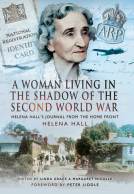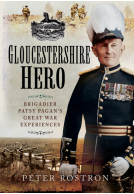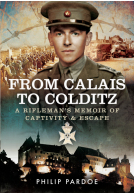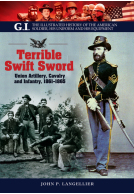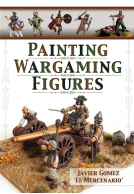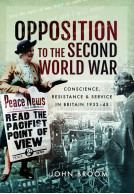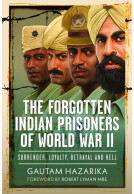Britain and the Widening War, 1915-1916 (Hardback)
From Gallipoli to the Somme
Imprint: Pen & Sword Military
Pages: 344
Illustrations: 730
ISBN: 9781473867178
Published: 4th July 2016
(click here for international delivery rates)
Order within the next 9 hours, 23 minutes to get your order processed the next working day!
Need a currency converter? Check XE.com for live rates
| Other formats available - Buy the Hardback and get the eBook for free! | Price |
|---|---|
| Britain and the Widening War,… eBook (44.8 MB) Add to Basket | £6.99 |
In a series of concise, thought-provoking chapters the authors summarize – and make accessible – the latest scholarship on the middle years of the Great War – 1915 and 1916 – and cover fundamental issues that are rarely explored outside the specialist journals. Their work is an important contribution to advancing understanding of Britain’s role in the war, and it will be essential reading for anyone who is keen to keep up with the fresh research and original interpretation that is transforming our insight into the impact of the global conflict.
The principal battles and campaigns are reconsidered from a new perspective, but so are more general topics such as military leadership, the discord between Britain’s politicians and generals, conscientious objection and the part played by the Indian Army. The longer-term effects of the war are also considered – facial reconstruction, developments in communication, female support for men on active service, grief and bereavement, the challenge to religious belief, battlefield art, and the surviving vestiges of the war.
Peter Liddle and his fellow contributors have compiled a volume that will come to be seen as a landmark in the field.
More academic than our usual fare, in this work the Editor brings together the work of leading scholars covering a number of fundamental issues rarely covered outside the pages of specialist journals.
The Great War magazine, March 2017 - reviewed by Mark Marsay
Important work. 8/10
This subject is particularly well handled and gives the reader a perspective not presented in other works. A well-balanced series of essays to compliment any library of reference works and one deserving to be read by anyone with an interest in WWI.
Gun Mart, March 2017 - reviewed by John Norris
I review books often, and although my main interest is in the Second World War, I do recommend the following book on the First World War.
British Military History, Rob Palmer
The joy of books for me is the range of titles available, and the differing purposes of books, so one can gain differing perspectives of a subject. There are several books that provide personal accounts of war service in the First World War, and others that analyse particular battles, but overall, few that cover the political and military strategic elements of the war. This book helps fill this void.
I admit that I particularly enjoy a book of this style, where several historians have contributed individual chapters, covering a range of issues. The twenty-one chapters cover a review of the Dardanelles and Gallipoli campaign, firepower and equipment in use with the British Army, German Command and Control during the Somme fighting, Facial Surgery, the effect of war on faith, and teenagers in war. With my particular interests in mind, I was very pleased to read the chapter on the Indian Army and the Mesopotamia Campaign.
Another advantage for me with a book of this style, is the ability to pick it up, and read one chapter at a time. You can be really anarchic, and read Chapter 14, followed by Chapter 2, and then 19 if you want to, as each Chapter stands by itself. To read the whole book remains important to gain the full context of the nature of the First World War in this period. All the authors of chapters are distinguished academics in their field, and include Peter LIDDLE himself, Duncan REDFORD, Gary SHEFFIELD, and Robert JOHNSON.
There are eighty photographs included, each one supports the subject of a chapter. There are many I have not seen before, and the quality is good. On the rear of the book it states, ‘Explores key issues such as leadership and command, valour, conscientious objection, military medicine, the Home Front, the role of women, grief and bereavement, the archaeology of the war’, and having read the book twice, I agree fully. In short, a great book, and a thought provoking, yet enjoyable, read.
This is a timely book, focusing on an important time period during the height of the Great War. It brings together key and pivotal campaigns and aspects of the war, thus providing the reader with a comprehensive, yet broad sweeping overview of the development of the war from various perspectives...
Jon Sandison, Freelance
The book is complimented by a series fascinating photographs which reinforce the key themes of each chapter, including a magnificent shot of men at Gallipoli studying orders, some of the British fleet following Jutland, and a British wiring party slogging through mud on the Somme a young munitions girl working on a 60-pounder shell, and reconstruction of a wounded soldiers face via medical advances. A further chapter provides an overview of how various kinds of telecommunications were developed and used by the British military during 1914-18.
It is mentioned in one chapter that the centenary period is an 'exceptional opportunity for researchers, groups, schools, and academics to contribute towards a deeper understanding of the Great War' and that this presents us with an opportunity to re-examine previous records, make alterations and perhaps commonly held myths. This book certainly fulfils that task. If you are looking for a book that provides an overview of the facets of World War One, this is it.
Peter Liddle and his team of leading specialists have produced a provoking new book that features the latest research into WWI. The publishers have already established a reputation for this type of book and set new standards, highly recommended.
Firetrench
Read the full review here.
As featured in
Living North Magazine
About Peter Liddle
Former teacher, lecturer and founder/director of two archives on the world wars of the twentieth century, Peter Liddle is a well-published historian of personal experience in those wars with books on
Gallipoli, The Somme and D-Day. He is dedicated to the preservation of the evidence of the past and has particularly enjoyed drawing together in publications and conferences the research of others in the field..
He has a lifetime of interest in sport, history travel and wildlife. He lives with his wife, Louise, in Rawdon, Leeds. He is Life President of The Second World War Experience Centre.









